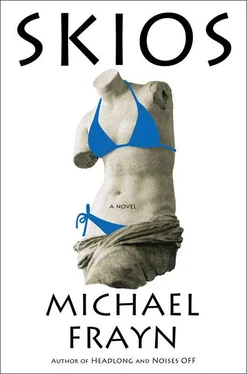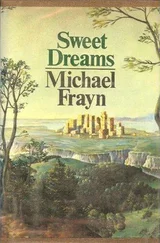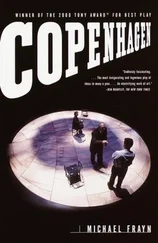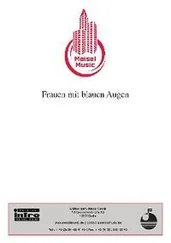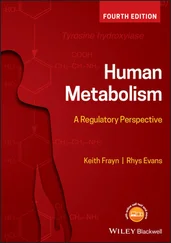The man smiled and nodded and looked away. He was embarrassed to have been picked upon by some wandering schizophrenic.
At this even more immediate insult the focus of Dr. Wilfred’s rage shifted to the more accessible target who had offered it. He grabbed the man’s arm.
“I am ! I am !” he shouted. The man snatched his arm away, terrified. Various people in the crowd turned round to see what the disturbance was. Dr. Wilfred waved the text of his lecture about in front of their faces.
“My lecture!” he cried. “Mine! I am Dr. Norman Wilfred! Not him! Me!”
The people looked not at the lecture but at one another, and then anywhere but at one another, embarrassed at even having been seen to be seeing this outburst.
Dr. Wilfred stopped still and watched them all getting farther and farther away from him. Public opinion in the matter of his identity was overwhelmingly against him. He was in a minority of one, and there was nothing he was going to be able to do about it.
He sat down on a bench beside the roadway, feeling for the third time that day suddenly weak and strange, as if he were recovering from yet another bout of delirium. He looked at the text of his lecture in the last of the fading daylight. He was Dr. Norman Wilfred, though! He was, he was ! It said so on the binder!
He opened it, and found himself once again in the vibrant and bustling city of Kuala Lumpur … or rather, in the open spaces of Western Australia … no, on the green and tranquil island of Skios. He read the paragraphs he had written specially for the present occasion, about the parallels between, on the one hand, the patrons who had guided and nurtured the European civilization that the Fred Toppler Foundation existed to promote, and, on the other, the business enterprises and government departments that commissioned and financed scientific research. Now all this specially composed material was going to waste.
He turned over more pages. “… Challenges … hopes and fears…” Somehow, though, they didn’t seem quite as compelling, quite as real, as they had before. Here was a good bit, though—“A concerted and imaginative response is required from governments and leaders of industry alike…”
Or was it so good after all?
He turned over more pages, but his mind was wandering. Two dark spots had appeared in the air between him and the page like importunate flies. He brushed them aside. He turned back to the section about the overall framework of social responsibility. The two dark spots reappeared. They were two moles, he realized. They had become detached from the shoulder blade on which they lived, and taken up residence inside his brain.
He tried to focus his eyes on the overall framework and the concerted response, but the virtue had gone out of them. The whole lecture had turned to dust before his eyes. He felt relieved that the prospect of reading it aloud to an audience now seemed to have receded so far.
It was not only the two moles that were now coming between him and the text, he discovered. There was the whole shoulder blade on which they lived, gleaming with the oil he had rubbed into it. There was the little gleaming hillock beside it that marked the top of the spine, and the gleaming ladder of vertebrae that led down, down to the little hollows on either side of the coccyx …
He remembered how encouraging Georgie had been to him. How she had believed in him. How she had accepted unquestioningly what no one else on this island would: that his name was Wilfred. Or at any rate that one of his names was. But since, when she called him Wilfred, he heard it as his surname, it was like being back at school. It was like being young again.
And she had believed in his lecture. She had wished him well with it. Had kissed him good-bye …
He had been mad to leave! And by now her boyfriend would have turned up and claimed her.
No! He wouldn’t! It came to Dr. Wilfred, in the second rare eureka moment he had been granted in the course of a single day, who Georgie’s boyfriend was, and why he was not with Georgie. The whole story at last fell into place. The narrative at last made sense.
Yes. It was Georgie’s boyfriend who had taken his suitcase, his taxi, his room, his life. And who was now taking the place he should have had at dinner — who was sitting there in his skateboarding trousers, surrounded by admiring faces and attentive microphones, stuffing his bulging stomach with one specially prepared onion-free course after another.
While poor trusting Georgie waited up there in her lonely mountain retreat, abandoned and forgotten.
And, if her boyfriend was here, then she still had nothing to eat. Dr. Wilfred could feel the nagging emptiness inside her, the uneasy lassitude, almost as painfully as Georgie would be feeling them herself. The sheer wrenching injustice of it overwhelmed him.
The more Dr. Wilfred thought about it, the more serious Georgie’s situation appeared to him. Not only was she hungry now — she had no prospect of ever eating again. Or any way of communicating her plight to the outside world. By the time she realized that no one was ever going to come she could conceivably be too weak to struggle to some other settlement for help. It wasn’t possible that a fit young woman could actually starve to death at the height of summer on a Mediterranean island. Or was it?
Anything was possible. In the last twenty-four hours that horrible bulging impostor in the skateboarding trousers had proved it over and over again.
He jumped to his feet and walked back to the now deserted Temple of Athena. Among the empty glasses and overturned bottles were platters still scattered with uneaten canapés. On one of the platters he assembled a reasonably representative selection: soft-poached ortolans’ eggs, anchovies in absinthe, and tiny baskets, woven out of sea-grass, filled with lobster tartare and fouetté of shark fin. He covered the platter with a tablecloth, clamped the lecture under his arm, and hurried back towards the outside world.
If he’s me, he thought, then I’ll be him. He lives my life — I live his.
* * *
In the sky above the agora lingered a frescoed ceiling of pink and golden cirrus. On the tables the flames of the candles swayed languidly as the diners moved about, finding their places, and then stood behind their chairs, waiting for the bishop to say grace. There was a bright murmur of people introducing themselves to the neighbors on either side. “Hi!” the wealthy and socially adept guests of the foundation were saying to one another, extending welcoming hands and smiling welcoming smiles. The wealthy and socially wary business associates of Mr. Papadopoulou unsmilingly inspected the outstretched hands, and nodded, and gave nothing away.
In the center of the top table, at the focus of everyone’s attention, stood Dr. Wilfred. He had surrendered to public opinion. Dr. Wilfred he would have to remain.
On his left stood Mrs. Fred Toppler, the candlelight flashing points of fire back from her hair, her neck, her bosom, her fingers; on his right Mrs. Skorbatova, with richly tanned full breasts struggling to be free of her décolletage, and a construction of brass-colored hair on her head that would have been proof against small-arms fire. In front of Mrs. Toppler were a table lectern and various microphones. Before these would be moved to stand in front of Dr. Wilfred, though, there were four courses of dinner, four fine wines, and surely also time for some idea to come to him about what he would do when the moment arrived.
Mrs. Toppler picked up a gavel made from local olive wood, and struck its olive-wood base three times. The murmur of conversation died away. The candle flames settled and stood as still as the diners themselves behind their chairs. From the farther end of the table came a mumble of Greek, incomprehensible but recognizably liturgical. “Amen,” agreed all but the most committed atheists and the most taciturn businessmen, and there was a slithering of rented gilt chairs being drawn back from the tables over rented oriental carpets as everyone sat down.
Читать дальше
